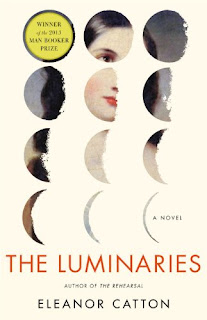Thank you for joining me for Book Beginnings on Fridays. Please share the opening sentence (or so) of the book you are reading this week. You can also share from a book that caught your fancy, even if you are not reading it right now.
MY BOOK BEGINNING
Anyone who has never before visited Krishnapur, and who approaches from the east, is likely to think he has reached the end of his journey a few miles sooner than he expected.-- from The Siege of Krishnapur by J. G. Farrell.
YOUR BOOK BEGINNINGS
Please add the link to your Book Beginnings post in the box below. If you share on social media, please use the #bookbeginnings hashtag.This preview will disappear when the widget is displayed on your site.
If this widget does not appear, click here to display it.
Freda at Freda's Voice started and hosted The Friday 56 for a long, long time. She is taking a break and Anne at My Head is Full of Books has taken on hosting duties in her absence. Please visit Anne's blog and link to your Friday 56 post.
MY FRIDAY 56
-- from The Siege of Krishnapur:
Yet it was the Collector himself who was responsible for this fortnightly torment since it was he who had founded the Society. He had done so partly because he was a believer in the ennobling powers of literature, and partly because he was sorry for the ladies of the Cantonment who had, particularly during the hot season, so little to occupy them.
India, 1857--the year of the Great Mutiny, when Muslim soldiers turned in bloody rebellion on their British overlords. This time of convulsion is the subject of J. G. Farrell's The Siege of Krishnapur, widely considered one of the finest British novels of the last fifty years.
Farrell's story is set in an isolated Victorian outpost on the subcontinent. Rumors of strife filter in from afar, and yet the members of the colonial community remain confident of their military and, above all, moral superiority. But when they find themselves under actual siege, the true character of their dominion--at once brutal, blundering, and wistful--is soon revealed.






























